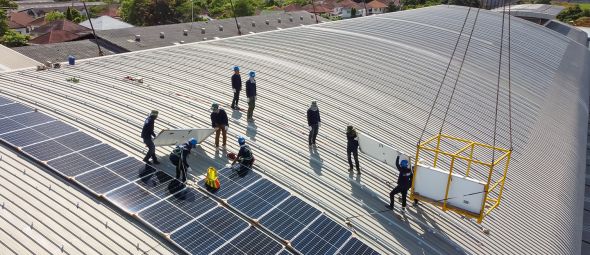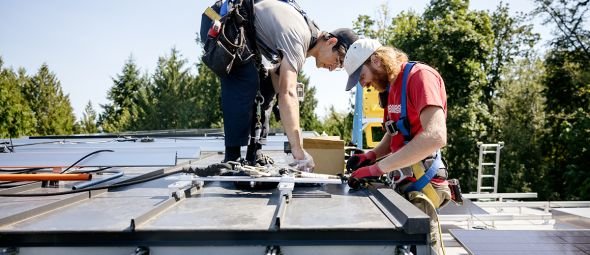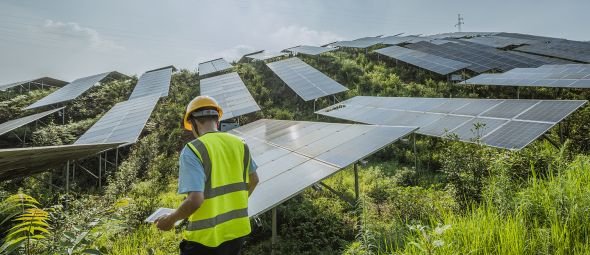Overview
Governments and businesses alike are making changes to energy production and infrastructure, including increased investments in emerging energy technologies, alongside pivotal shifts in traditional energy sectors. These changes have implications for workers and their communities, affecting access to quality jobs and training opportunities, which in turn can help or harm local economic resilience and broader economic outcomes. New research highlights how policymakers, employers, and workforce and economic development leaders can help transition energy systems to support strong employment opportunities aligned with labor market needs.
Featured Content

Skills and training, Energy transition
Last updated on March 31, 2025
Research Summary
What High-Quality Local Jobs Are Available as Fossil Fuel Work Disappears?
As carbon-intensive jobs disappear, workers in these roles need high-quality jobs to sustain their livelihoods. This study identifies alternative jobs and associated skills that fossil fuel workers will need to transition into new employment within communities dependent on the industry.
Last updated on March 31, 2025

Worker voice, representation, and power, Energy transition
September 01, 2023
Research Summary
Unionized Energy Workers Concerned About Employment Frictions with Transitions to Renewable Energy
Research finds that unionized energy workers are concerned about transitions from fossil fuels to renewable energy industries, emphasizing the role that workers must play in climate change policy discussions.
September 01, 2023

Economic context, Workers in the South, Energy transition
April 14, 2023
Research Summary
Green Energy Jobs Are Growing and Could Unlock Opportunity for Workers
Green jobs in wind and solar energy are more common than ever before, bringing higher wages to workers, especially in parts of the country worst affected by the decline in fossil fuel extraction.
April 14, 2023
Latest Content

Skills and training, Energy transition
Last updated on March 31, 2025
Research Summary
What High-Quality Local Jobs Are Available as Fossil Fuel Work Disappears?
As carbon-intensive jobs disappear, workers in these roles need high-quality jobs to sustain their livelihoods. This study identifies alternative jobs and associated skills that fossil fuel workers will need to transition into new employment within communities dependent on the industry.
Employer practices, Scheduling, Paid leave, Energy transition
Report
Last updated on January 22, 2025
Job Quality and Employer Practices: Evidence from B Corporations
A new WorkRise report, Job Quality and Employer Practices: Evidence from B Corporations, examines differences across firms in employer practices related to job quality, and how those differences relate to outcomes for both workers and businesses.
WorkRise Research
Employer practices, Immigrant workers, Young workers, Energy transition, Workers in the South
Brief
Last updated on September 19, 2024
Extreme Heat at Work
This research brief offers the first nationally representative estimates of how outdoor and indoor workers are affected by extreme heat, highlighting that low-wage workers, defined as adults earning less than $15 an hour, face greater risks than higher-wage earners.
WorkRise Research

Job search and matching, Energy transition
December 19, 2023
Research Summary
Who Transitions from Dirty to Green Jobs?
The number of workers moving from carbon-intensive (“dirty”) to noncarbon-intensive (“green”) jobs is higher than ever before—yet remains low overall. Policymakers, practitioners, and researchers can help facilitate the green jobs transition and ensure that no worker is left behind.
